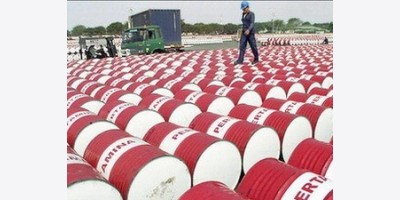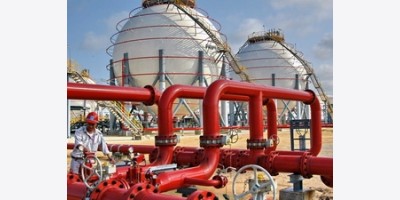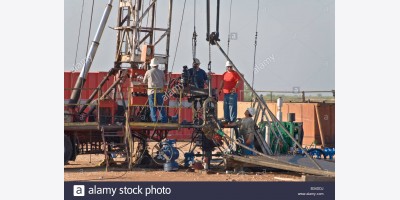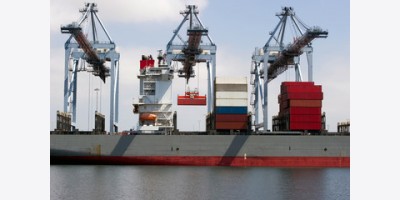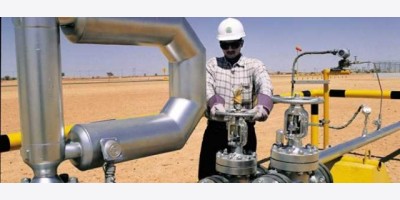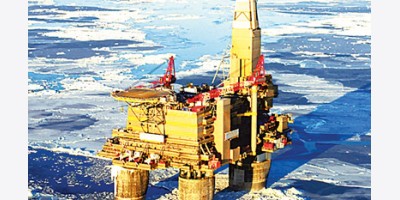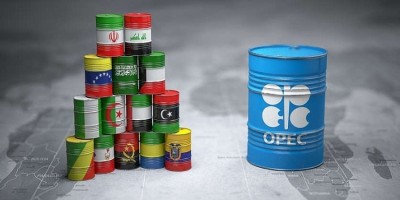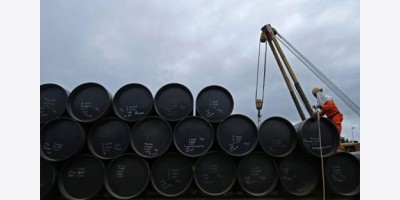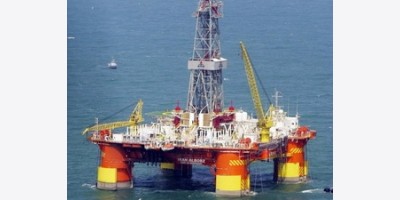By Laurel Brubaker Calkins and Dan Murtaugh Jul 29, 2014 7:56 AM GMT+0700
The Iraqi Oil Ministry is seeking a court order to seize more than $100 million of oil waiting to offload in Galveston, Texas, that it claims was illegally pumped from wells in Kurdistan.
Kurdish officials “misappropriated” more than 1 million barrels of oil from northern Iraq and exported it through a Turkish pipeline, according to a complaint filed today in federal court in Houston.
The U.S. officially recognizes Kurdistan as part of Iraq, although the Kurdish people have jockeyed with the Baghdad-based national government for autonomy for more than a decade. Oil revenues from the northern oil fields could fuel Kurdistan’s fight for independence.
The Iraqi government warned Kurdish officials to stop the illegal exporting through Turkey, which began in December, according to the complaint. The crude shipment, currently docked off Galveston, left Ceyhan, Turkey, on June 23, and has “changed destinations multiple times” while at sea, according to the filing.
If a U.S. refinery accepts shipment of the crude, it will send a signal to the rest of the world that it is acceptable to do business with the Kurdish government, said Carl Larry, president of Oil Outlooks & Opinions LLC.
“It opens the door to some kind of breakup in that region where you could have a separate Kurdistan and Iraq,” Larry said in a telephone interview. “It’s definitely going to create that separation, and more people are going to recognize that and respect it.”
Iraq’s Expense
The Iraqi Oil Ministry asked U.S. marshals to oversee lightering operations to remove crude from the tanker and store it onshore at Iraq’s expense. A proposed arrest warrant filed with the complaint doesn’t ask to seize the United Kalavrvta, the Marshall Islands-flagged tanker, which is too large to enter the Houston Ship Channel and offload cargo directly.
A lightering contract has already been signed, according to the complaint, and the tanker has been cleared to proceed with offloading by the U.S. Coast Guard, according to an agency spokesman.
“The United Kalavrvta has completed all the standard procedures with the Coast Guard to conduct business here,” Andy Kendrick, a Houston-based spokesman for the agency, said in an e-mail. “We are not imposing any additional criteria.”
Phillip Dye, a Houston attorney representing the Iraqi Oil Ministry, didn’t immediately return telephone or e-mail requests for comment after regular business hours.
Kurdish Resources
Oil producers are actively pursuing resources in coordination with the Kurdistan Regional Government, which estimates the northern territory holds 45 trillion barrels of oil reserves. The Kurdish government expanded its control over the country’s resources in early June, when Kurdish Peshmerga armed forces took control of northern Iraq’s key oil hub, Kirkuk, after militants routed the Baghdad government’s army.
The case is Ministry of Oil of the Republic of Iraq v. 1,032,212 Barrels of Crude Oil Aboard the United Kalavrvta and the Ministry of Natural Resources of the Kurdistan Regional Governate of Iraq, 3:14-249, U.S. District Court, Southern District of Texas (Galveston).
To contact the reporters on this story: Laurel Calkins in Houston at lcalkins@bloomberg.net; Dan Murtaugh in Houston at dmurtaugh@bloomberg.net
To contact the editors responsible for this story: Michael Hytha at mhytha@bloomberg.net; David Marino at dmarino4@bloomberg.net Fred Strasser, Peter Blumberg
Iraq Gets Court Order Seizing Kurdish Crude Off Texas
By Laurel Brubaker Calkins and Dan Murtaugh Jul 29, 2014 9:04 AM GMT+0700
The Iraqi Oil Ministry persuaded a U.S. judge to issue an order for the seizure of more than $100 million of oil in a tanker waiting off Galveston, Texas, that it claims was illegally pumped from wells in Kurdistan.
Kurdish officials “misappropriated” more than 1 million barrels of oil from northern Iraq and exported it through a Turkish pipeline, according to a complaint filed today in federal court in Houston.
U.S. Magistrate Judge Nancy Johnson of Galveston today issued an order and arrest warrant authorizing U.S. marshals to seize the cargo and have it moved ashore for safekeeping until the dispute is resolved.
The U.S. officially recognizes Kurdistan as part of Iraq, although the Kurdish people have jockeyed with the Baghdad-based national government for autonomy for more than a decade. Oil revenues from the northern oil fields could fuel Kurdistan’s fight for independence.
The Iraqi government warned Kurdish officials to stop the illegal exporting through Turkey, which began in December, according to the complaint. The crude shipment, currently docked off Galveston, left Ceyhan, Turkey, on June 23, and has “changed destinations multiple times” while at sea, according to the filing.
If a U.S. refinery accepts shipment of the crude, it will send a signal to the rest of the world that it is acceptable to do business with the Kurdish government, said Carl Larry, president of Oil Outlooks & Opinions LLC.
“It opens the door to some kind of breakup in that region where you could have a separate Kurdistan and Iraq,” Larry said in a telephone interview. “It’s definitely going to create that separation, and more people are going to recognize that and respect it.”
Iraq’s Expense
The Iraqi Oil Ministry asked U.S. marshals to oversee lightering operations to remove crude from the tanker and store it onshore at Iraq’s expense. The proposed warrant filed with the complaint didn’t ask to seize the United Kalavrvta, the Marshall Islands-flagged tanker, which is too large to enter the Houston Ship Channel and offload cargo directly.
A lightering contract had already been signed, according to the complaint. The tanker was cleared by the U.S. Coast Guard to proceed with offloading, the agency said.
Phillip Dye, a Houston attorney representing the Iraqi Oil Ministry, didn’t immediately return telephone or e-mail requests for comment after regular business hours.
Kurdish Resources
Oil producers are actively pursuing resources in coordination with the Kurdistan Regional Government, which estimates the northern territory holds 45 trillion barrels of oil reserves. The Kurdish government expanded its control over the country’s resources in early June, when Kurdish Peshmerga armed forces took control of northern Iraq’s key oil hub, Kirkuk, after militants routed the Baghdad government’s army.
The case is Ministry of Oil of the Republic of Iraq v. 1,032,212 Barrels of Crude Oil Aboard the United Kalavrvta and the Ministry of Natural Resources of the Kurdistan Regional Governate of Iraq, 3:14-249, U.S. District Court, Southern District of Texas (Galveston).
To contact the reporter on this story: Laurel Calkins in Houston at laurel@calkins.us.com
To contact the editors responsible for this story: David E. Rovella at drovella@bloomberg.net Fred Strasser, Peter Blumberg
Coast Guard Clears Tanker With Kurdish Oil to Unload
By Dan Murtaugh and Naomi Christie Jul 29, 2014 6:27 AM GMT+0700
An oil tanker floating off the coast of Texas is waiting to unload its cargo of oil from the Kurdish region of Iraq after receiving clearance yesterday.
The U.S. Coast Guard finished the certificate of compliance exam yesterday for the United Kalavryta, anchored 60 miles (97 kilometers) southeast of Galveston, Andy Kendrick, a Houston-based spokesman for the agency, said in an e-mail. The ship is carrying Kurdish oil, Kendrick said later by phone. The cargo remains on board, a U.S. State Department official not authorized to comment for attribution said by e-mail.
The Iraqi Oil Ministry filed a complaint today in federal court in Houston claiming that Kurdish officials “misappropriated” more than $100 million worth of oil and exported it through a Turkish pipeline.
If a U.S. refinery accepts a shipment of the crude, it will send a signal to the rest of the world that it is acceptable to do business with the Kurdish government, said Carl Larry, president of Oil Outlooks & Opinions LLC. Officials in Baghdad have said the country’s oil revenue belongs to Iraq’s central government.
“It opens the door to some kind of breakup in that region where you could have a separate Kurdistan and Iraq,” Larry said by phone from Houston. “It’s definitely going to create that separation, and more people are going to recognize that and respect it.”
Too Deep
The ship can hold more than 1 million barrels of crude, according to data compiled by Bloomberg. Its draft is 16.3 meters, which is too deep to enter the Houston Ship Channel directly, said Clint Winegar, executive committeeman for the Houston Pilots. Instead, the tanker must offload its cargo onto smaller ships, an activity known as lightering.
“The United Kalavryta has completed all the standard procedures with the Coast Guard to conduct business here,” Kendrick said in the e-mail. “We are not imposing any additional criteria.”
Iraq’s semi-autonomous Kurdistan Regional Government is seeking to sell oil from its territory and claim revenue to help finance its effort for further independence from the national government. Officials in Baghdad have said the country’s oil revenues belong to the central government.
Oil producers are actively pursuing resources in coordination with the Kurdistan Regional Government. The Kurdish government expanded its control over the country’s resources in early June, when Kurdish Peshmerga armed forces took control of northern Iraq’s key oil hub, Kirkuk, after militants routed the Baghdad government’s army.
In June, Iraq had the highest estimated oil output of any member of the Organization of Petroleum Exporting Countries except Saudi Arabia. The Kurdistan Regional Government estimates the area holds 45 billion barrels of oil reserves.
To contact the reporters on this story: Dan Murtaugh in Houston at dmurtaugh@bloomberg.net; Naomi Christie in London at nchristie5@bloomberg.net
To contact the editors responsible for this story: David Marino at dmarino4@bloomberg.net Richard Stubbe, Bill Banker
on July 29, 2014 / in News 12:21 am / Comments
BY SEBASTINE OBASI
Despite the challenges of insecurity, Nigeria’s ongoing struggle with poverty and withheld investments by the international oil companies, IOCs, the oil and gas sector has the potential to contribute about $108 billion yearly by 2030, up from $73 billion in 2013, a McKinsey Report has stated.
The report, which was released recently stated that while the oil and gas sector is expected to grow by 2.3 percent annually, its success is still vital to the Nigerian economy.
According to the report, “with the right reforms, oil production could increase from 2.35 million barrels a day on average to a new high of 3.13 million barrels a day by 2030, contributing $22 billion to gross domestic product, GDP by 2030. Natural gas output could grow by as much as six percent per year, adding $13 billion to GDP by 2030.
“In total, the oil and gas sector has the potential to contribute $108 billion per year by 2030, up from $73 billion in 2013. However, this assumes that the sector is successful in dealing with current obstacles such as security and can attract fresh investment.”
The report also said that Nigeria has the potential to expand its economy by about 7.1 percent annually through 2030, raising GDP to more than $1.6 trillion. This could make Nigeria a top 20 global economy with higher GDP than the Netherlands, Thailand, or Malaysia in 2030.
What’s more, it added that a large consuming class is developing in Nigeria, with potentially as many as 160 million members by 2030, more than the current populations of France and Germany combined. This upside scenario is based on a bottom-up analysis of the potential for major sectors of the Nigerian economy, such as trade, agriculture, infrastructure and manufacturing.
According to McKinsey, based on an expanding consumer class in Nigeria, it is projected that consumption could more than triple, rising from current $388 billion/year to $1.4 trillion/year in 2030, an annual increase of about eight percent.
This would make trade the largest sector of the economy, and provides a particularly good opportunity for makers of packaged foods and fast-moving consumer items such as juices, which could grow by more than 10 percent yearly.
As regards agriculture, it stated that improvements on several fronts can help raise both the volume and value of Nigerian agricultural production in the next 15 years. The sector, which is now the largest at 22 percent of GDP, could more than double from $112 billion/year in 2013 to $263 billion by 2030.
It however said that this would require raising yields through greater use of fertiliser, seeds, and mechanised implements; shifting the crop mix to more valuable crops; increasing the amount of land under cultivation; reducing post-harvest losses; and raising more livestock and increasing the output of forestry and fisheries.
For infrastructure, the report stated that on the average, the value of a nation’s core infrastructure – roads, railways, ports, airports, the electrical system is about 70 percent of GDP. Whereas in Nigeria, core infrastructure is estimated to be about 35 – 40 percent of GDP.
It has one-seventh the roads per kilometer as India. On a per capita basis, Nigeria has one-third the residential buildings of Indonesia and one-sixth of the commercial space. Between core infrastructure and real estate, total infrastructure investments in Nigeria could reach $1.5 trillion between 2014 and 2030. This would not only make infrastructure building a major contributor to GDP, but also an enabler of growth across the economy.
Also, it reported that manufacturing in Nigeria remains at a relatively early stage of development, contributing $35 billion, or about seven percent of GDP, in 2013. It has, however, achieved strong growth recently, with output rising by 13 percent per year from 2010 to 2013.
Copyright@http://www.vanguardngr.com
By Andy Tully | Mon, 28 July 2014 20:39 | 0
Benefit From the Latest Energy Trends and Investment Opportunities before the mainstream media and investing public are aware they even exist. The Free Oilprice.com Energy Intelligence Report gives you this and much more. Click here to find out more.
Rosneft, Russia's largest oil producer, says it's working out ways to maintain its profitability despite increasingly tougher Western sanctions, and that its revenues so far are still soaring.
Rosneft CEO Igor Sechin issued a statement on July 25 saying the company has been developing steps to cope with the sanctions imposed by Western nations because of Moscow's actions in neighboring Ukraine this year. “Together with our partners – the world's leading oil companies -- we are working on a plan to minimize the consequences of including Rosneft on the sanction lists,” the statement said.
Two of those partners are the Exxon Mobil of the United States and Statoil of Norway, both of which plan to cooperate with Rosneft to develop Russia's Arctic oil reserves and other Russian oil that's difficult to extract. Statoil CEO Helge Lund said his company has studied the sanctions so far in place and found no reason to change its partnership plans with the Kremlin-owned oil company.
But that's only so far. Rosneft is among several Russian enterprises awaiting even tougher sanctions from the European Union, which so far has been reluctant to go as far as Washington in imposing sanctions on Russia. EU nations, after all, rely on Russia for one-third of their gas supplies.
Yet European leaders, caught in the deepest confrontation with Moscow since the Cold War, say they are determined to punish Russia further since a Malaysia Airlines jetliner was downed by a surface-to-air missile over Ukrainian territory controlled by Russian-armed separatists on July 17, killing all 298 people on board, most of them Dutch.
New European sanctions may include a ban on exporting oil- and gas-extracting equipment to Russia, which could interfere with Rosneft's efforts in the Arctic.
The first round of U.S. sanctions, imposed in May, in part targeted Sechin in response to Moscow's annexation of the Ukrainian peninsula of Crimea. Those measures forbid U.S. nationals to do business with Sechin, but may maintain ties with Rosneft itself because Sechin is not its majority owner.
The latest U.S. sanctions, imposed since the downing of the Malaysian jetliner, forbid individuals or companies with ties to the United States to extend medium- or long-term credit to Rosneft and several other large Russia's companies.
Meanwhile, Rosneft also issued a statement on July 25 announcing that its profits during the second quarter of 2014 rose fivefold over the same period in 2013 to 171 billion rubles, or $4.87 billion, eclipsing the average estimate of 156.7 billion rubles predicted in a Bloomberg News survey of 10 oil industry analysts.
Rosneft attributed this rise to a 24 percent increase in sales of oil and gas and elevated total revenue by 22 percent to 1.44 trillion rubles. Cash on hand, meanwhile, rose to 112 billion rubles during the quarter, the company said.
By Andy Tully of Oilprice.com
July 29, 2014
Reuters
SINGAPORE - The United States faces an awkward rival in its first attempts in 40 years to export crude oil - Iran. Iran, whose economy has been throttled by Western sanctions that have halved its crude shipments, is now selling higher quality and cheaper oil to China that leaves little room for the U.S. crude to enter the world's top energy consumer.
While buyers in Japan and South Korea have been willing to trial a U.S. grade of the super-light crude known as condensate, China has already locked in annual contracts with Tehran and is not expected to take any U.S. oil in the short-term. With U.S. producers looking to open a trade route to sell surplus condensate from the U.S. shale boom, worries about quality and legal issues have added to doubts about how much of the oil the rest of Asia can take.
"China gets condensate from Iran, which is much cheaper than that from the U.S.," said a Singapore-based trader with a European trading company. "They might get involved at a later stage but they will not be at the forefront." Condensate won export approval from U.S. officials in June as long as it has been minimally processed, softening a decades-old ban on selling U.S. crude abroad.
The light oil can be cracked in a processing plant called a splitter to make petroleum products and petrochemicals, or blended with heavier crude for use in refineries.
South Korea and Japan have purchased the first condensate from the United States. Mitsui & Co bought a cargo from Enterprise Product Partners for loading this month and has onsold it to South Korean refiner GS Caltex, sources said.
Refiner Cosmo Oil Co has also bought a cargo of U.S. condensate that will load in late August for arrival at the Yokkaichi refinery in Japan in October, a source said.
Japan and South Korea, which together account for just over half of Asia's 1.1 million-barrels-per-day (bpd) in condensate splitter capacity, are seen as more open to trying the United States as an alternative supplier.
Enterprise has also signed a short-term contract with another Japanese trader, Mitsubishi Corp, with a first loading likely in September.
IRAN COMPETITION Asian buyers have been waiting to see if the U.S. oil is suitable and if exporters can price it competitively given it has to be shipped a further distance than competing grades from the leading regular suppliers Qatar and Australia.
"They are testing the waters so we're not expecting huge volumes this year," said Richard Gorry, managing director of energy consultancy JBC Asia. Showing the competition U.S. exports face, Iran exports about 55 percent of its roughly 250,000 bpd of South Pars condensate output to two Chinese buyers at deep discounts under annual contracts.
Since U.S. and European Union sanctions were eased late last year in exchange for Iran curbing nuclear activities, Tehran's exports have risen about 30 percent to 1.25 million to 1.3 million bpd, much of this as South Pars shipments to China.
Some of the Iranian condensate could be sold as low as $5 a barrel below Dubai quotes or about $8 a barrel cheaper than Qatari grades.
U.S. condensate would likely have to be priced lower than the similar Qatari grades to attract buyers, traders said.
Qatar is the biggest supplier of condensate to Asia at about 450,000 bpd, followed by Iran. Australia and East Timor together produce nearly 170,000 bpd, with most of the output heading to Asian markets, according to trade sources. Higher shipping costs compared with the short distance from the Middle East will deter India from buying U.S. condensate, according to sources at Indian refiners.
LEGAL, QUALITY CONCERNS Another issue is uncertainty over the future of U.S. regulations on condensate exports.
Two U.S. senators have questioned the U.S. Commerce Department's approval, saying exports may violate a ban in place since the Arab oil embargo of the 1970s. Refined products, such as gasoline and diesel, are not restricted.
"What happens if some ruling appears and penalises the buyers?" asked a trader at a North Asian refiner. "Also, there's not much economics in it so why take the risk?" Asian users are also concerned that U.S. condensates may vary widely in quality as they will be come from fields scattered across shale formations such as the Eagle Ford in southern Texas, from which Enterprise pulls its oil.
The U.S. oil is expected to be more commonly used as a blend stock by refiners, limiting the amount available for 350,000 bpd of new splitter capacity coming online in Asia this quarter.
By Matthew Philips July 28, 2014

The Flint Hills refinery in Corpus Christi, Texas
An important shift has quietly occurred in the U.S. oil industry in the past month. In late June the Department of Commerce determined that two Texas companies, Pioneer Natural Resources (PXD) and Enterprise Products Partners (EPD), could start exporting an ultralight type of crude called condensate. That constitutes the biggest loosening of the U.S. ban on oil exports since it was passed in 1975.
After news of the ruling broke, Commerce Department officials seemed genuinely surprised by the reaction and announced that allowing condensate exports did not ordain a change in the law. Yet, that’s pretty much how the market treated it.
Energy companies are now lining up to get the same permission from the government as Pioneer and Enterprise. There’s talk of building condensate-only pipelines in Texas, home to some of the biggest such reserves in North America. The topic was discussed at length during the Energy Information Administration’s annual conference a couple of weeks ago, and analysts have even begun calculating valuations for oil companies based on a future where the export ban gets lifted.
The political reality is much different. Although lifting the ban has been discussed more in Congress this year than at any other time during the past four decades, the votes aren’t there and the debate is still an epic fight between oil producers who want to lift the ban and refiners who would rather that oil stay at home.
So for the time being, we’re left to consider the importance of exporting condensate. The problem with condensate is that the U.S. is producing way more than it needs. The most common use for it is as an additive to lighten up heavier crudes and make them easier to refine; it’s also used as an ingredient in chemical plants. But that’s about it. According to energy research firm Wood Mackenzie, the U.S. produces about 750,000 barrels per day of condensate. Since so much of the U.S. oil boom already involves light oil, there’s not a lot of heavy oil to add it to.
On top of that, U.S. refiners don’t really want it. Condensate is so vaporous, it can overwhelm the workings of a refinery and slow down the process of turning oil into a fuel. In a July 7 filing with the Securities and Exchange Commission, Valero (VLO) reported that condensates are “uneconomic feedstocks for our refineries; removing them from crude may improve refinery throughout and yields.”
The problem will get worse as the U.S. continues to increase its oil production at the fastest pace on record. The EIA anticipates that U.S. oil production will rise another 4.3 million barrels per day by 2015, to 9.3 million. The bulk of that new oil is going to be light and sweet; a lot of it is going to be condensate, considered to be anything with an API (American Petroleum Institute) gravity value of more than 45 or 50.

This will only exacerbate the mismatch between oil supplies and U.S. refineries, which aren’t set up to process that much light crude. Most are designed to handle heavier, imported blends. Refineries are already running close to full tilt at the moment, processing more crude than ever. Total refinery utilization is 91 percent, compared with 83 percent in 2009. Refiners are making investments to handle more light oil, but it won’t be enough to absorb it all.
So how much condensate can the U.S. export? Citibank (C) analysts think it could be about 300,000 barrels a day by the end of 2014. Sarah Emerson, president of consulting and research group ESAI Energy, says she agrees. Trade publications are reporting that the first shipment of condensate was loaded for export earlier this month and is destined for Asia. If that keeps up, the amount of U.S. oil exports could double by the end of the year. Canada is exempt from the export ban and already gets about 268,000 barrels of oil a day from the U.S.

To export condensate, oil companies have to run it through what’s called a stabilizer out in the field. This removes a lot of the vapor and makes it less volatile. Once that’s done, it’s ready for export and oil companies can bypass traditional refiners and send it directly for export. According to a June 25 Bloomberg Industries report, it takes about a year to build a stabilizer—and roughly $200 million. It’s unclear how eager some oil companies are to make that investment.
Fadel Gheit, an oil analyst at Oppenheimer (OPY), says he thinks talk of an condensate export boom is overblown. In the weeks after the Commerce Department ruling, he called more than a dozen oil companies operating in Texas. “Not one of them said they had plans to go big in condensate exports,” says Gheit. “It’s not an issue for them.”
Burning oil depot that supplies airport could trigger 'humanitarian and environmental disaster,' government says.

By: Maamoun Youssef The Associated Press, Published on Mon Jul 28 2014
CAIRO—A fire at the oil depot for the airport in Libya’s capital raged out of control Monday after being struck in the crossfire of warring militias battling for control of the airfield, the latest violence to plague the country as foreigners flee the chaos.
Libya’s interim government said in a statement posted that the fire could trigger a “humanitarian and environmental disaster” in Tripoli, appealing for “international help” to extinguish the inferno. It did not say what it specifically needed.
The blaze had spread to a second depot by Monday afternoon, the government said. It was unclear if there were any injuries from the fire.
“The government appeals to all concerned parties to immediately stop firing as the situation has become very grave,” the government said.
Libyan television stations called on residents to evacuate areas within a five-kilometre radius of the airport. Many Libyan families scrambled to leave. Black smoke billowed over the Tripoli skyline.
Mohammed al-Harari, the spokesman for the Libyan National Oil Company, said the oil depot had a capacity of 6 million litres and that if the fire was not brought under control, it could ignite liquid gas nearby.
Fire trucks from several nearby cities and towns have been deployed to help extinguish the blaze, said a Libyan security official, speaking on condition of anonymity because he is not authorized to talk to journalists.
The battle for control of the airport began two weeks ago when Islamist-led militias — mostly from the western city of Misrata — launched a surprise assault on the airport, which has been under control of a rival militia from the western mountain town of Zintan. It wasn’t clear whose fire started the oil depot blaze.
The Health Ministry said Sunday that the fighting has so far killed 79 people and wounded more than 400.
More than three years after dictator Moammar Gadhafi’s downfall, Libya is witnessing one of the worst bouts of violence amid growing lawlessness in the country. Libya’s interim government, which relies on militias filled with rebels who battled Gadhafi’s forces for security, now finds itself unable to rein them in.
The fighting has sparked many to flee the country. On Saturday, the United States evacuated its diplomats from Tripoli to neighbouring Tunisia and shut its embassy. The United Nations Support Mission in Libya and the International Committee of the Red Cross have already withdrawn their staff as well.
European nations are warning their citizens to immediately leave the country.
German embassy staff in Tripoli were evacuated on Monday, Foreign Ministry spokeswoman Sawsan Chebli said in Berlin. They will be sent back “as soon as the security situation allows,” she said.
Canada warned Canadians to avoid or leave Libya earlier this month and repeated that warning on July 24.
“The Embassy of Canada in Libya’s ability to provide consular services to Canadian citizens in Libya is extremely limited, due to continuing political instability and violence,” the government said.
Meanwhile, Egyptian ambassador to Libya Mohammed Abu Bakr, who runs the embassy’s affairs from the Foreign Ministry in Cairo, denied on Monday that there were some Egyptian nationals among the 23 people killed when a rocket slammed into a house in Tripoli on Saturday.
Abu Bakr said he was officially informed about this by the Libyan Interior Ministry and did not elaborate.
The Egyptian Foreign Ministry said on Sunday that there were some Egyptian nationals among the 23 killed.
By Michelle Nichols
(Reuters) - The U.N. Security Council expressed grave concern on Monday over reports that radical militants have seized oilfields and pipelines in Syria and Iraq and warned that anyone caught trading in oil from the "terrorist groups" could face sanctions.
The 15-member council said in a statement that any trade in oil with Islamic State - previously known as the Islamic State in Iraq and the Levant - or al Qaeda's Nusra Front, would violate United Nations sanctions as both groups have been blacklisted.
The Russian-drafted statement "strongly condemns any engagement in direct or indirect trade of oil from Syria and Iraq involving terrorist groups," and "emphasizes that such engagement constitutes financial support for terrorists and may lead to further sanctions listings."
Islamic State militants seized four small oilfields when they swept through northern Iraq last month and are now selling crude oil and gasoline to finance their declared "caliphate." The group also controls oilfields in the Syrian province of Deir al-Zor after expelling the rival Nusra Front.
The Security Council "notes with concern that any oilfields and related infrastructure controlled by terrorist organizations could generate material income for terrorists, which would support their recruitment efforts, including of foreign terrorist fighters, and strengthen their operational capability to organize and carry out terrorist attacks."
It warned that all states are required to ensure that their citizens or people within their territory do no trade in oil with Islamic State or Nusra Front.
(Reporting by Michelle Nichols, editing by G Crosse)
(Reuters) - Iran expects progress will be made in talks this week with the United Nations' atomic agency, Tehran's nuclear envoy said on Monday, but Western diplomats held out little hope of an end to the deadlock.
The International Atomic Energy Agency (IAEA) has been trying for more than a year to coax Iran into letting it resume a stalled investigation into suspected atomic bomb research by Tehran, which denies any aims to make nuclear weapons.
Wednesday's talks in Vienna will be the 10th round of negotiations between the two sides since early 2012, so far without an agreement that would give the IAEA the access to sites, officials and documents it says it needs for its inquiry.
"We have the meeting with the expectation of progress of course," Ali Asghar Soltanieh, Iran's ambassador to the IAEA, told Reuters. "We are serious in these talks."
But a Western diplomat, also based in the Austrian capital, said he saw "no reason at all for optimism" in view of a series of failed meetings in the last 17 months. Other envoys also said they did not expect any breakthrough.
In May one year ago, IAEA Director General Yukiya Amano said after visiting Tehran that he expected to sign a deal with Iran soon to unblock the inquiry, but that hope was later dashed.
Western officials accuse Iran of stonewalling the IAEA, and of seeking to restrict the ability of U.N. inspectors to carry out their investigation the way they want.
Iran says the demands for access go beyond its obligations under the nuclear Non-Proliferation Treaty and that the allegations against it are based on forged intelligence.
IAEA WANTS BASE ACCESS
The IAEA-Iran talks are separate from, but still closely linked to, broader diplomatic negotiations between Tehran and six world powers aimed at resolving the decade-old dispute peacefully and prevent a new Middle East war.
Israel and the United States have warned of possible military action against Iran if diplomacy and sanctions fail to make it curb its nuclear program.
Tehran says the program is a purely peaceful project to generate electricity and that it is Israel, widely believed to hold the Middle East's only atomic arsenal, that threatens peace and stability in the region.
Iran and the six powers - the United States, France, Germany, Britain, Russia and China - failed to break the diplomatic impasse in their last meeting, held in early April in Kazakhstan.
Also on Wednesday, negotiators from the European Union and Iran will meet in Istanbul to discuss these diplomatic efforts, although analysts do not expect any substantive negotiations before Iran's presidential election on June 14.
Some diplomats say Iran is merely using the talks with the IAEA for leverage in the separate negotiations with world powers which, unlike the IAEA, have the power to ease sanctions that are hurting its oil-dependent economy.
The IAEA's immediate priority is to visit the Parchin military base. It suspects explosives tests relevant to nuclear weapons may have taken place there, perhaps a decade ago, and then been concealed. Tehran denies the accusation.
Iran says it must first agree with the IAEA on how the investigation should be carried out before allowing such access.
"Nothing will happen until this framework is negotiated and agreed upon," Soltanieh said.
(Editing by Angus MacSwan)
Houston (Platts)--28Jul2014/530 pm EDT/2130 GMT
Permian Basin crudes jumped as much as $5/barrel Monday on support from the start of September trading and the expected startup of the 300,000 b/d BridgeTex pipeline.
Scheduled to start moving crude in mid-August, the BridgeTex pipeline will help cut into the deep discount that Permian grades currently see to the rest of the US Gulf Coast market.
The charge was led by WTI-Midland, which was assessed at WTI minus $10.55/b, a $5/b increase from Friday's assessment.
Light Louisiana Sweet, the benchmark for USGC sweet crudes, rose $3.55/b Monday to WTI plus $2.95/b.
West Texas Sour was assessed at WTI minus $9.20/b, a $3/b jump compared with Friday.
--Josh Brown, joshua.brown1@platts.com --Edited by Keiron Greenhalgh, keiron.greenhalgh@platts.com
Washington (Platts)--28Jul2014/403 pm EDT/2003 GMT
The Obama administration later this week is expected to fully delve into the three-year process to develop the next five-year plan for offshore oil and gas leasing, an effort expected to center on whether to allow drilling in US Atlantic waters and offshore Alaska.
The US Interior Department's Bureau of Energy Management has already received hundreds of comments on which offshore areas should be auctioned off for oil and gas drilling from 2017 to 2022 and is expected to receive thousands more by Thursday, the deadline for its formal "request for information."
The plan, which administration officials want to have finalized before Obama is scheduled to leave office in January 2017, is expected to spark broad disagreements between industry, which wants unfettered access to the outer continental shelf, and environmentalists, who want offshore drilling limited, if not shut down completely.
The plan has already drawn considerable concern from California's Democratic congressional delegation, which has urged Interior officials to keep California's offshore waters out of the five-year plan.
But the three OCS planning areas offshore California are largely seen as politically untenable and will likely draw little focus from industry lobbyists, according to Erik Milito, upstream director for the American Petroleum Institute.
Milito said that industry is expected to push for expanded drilling throughout the US Gulf of Mexico, as well as in the Atlantic and offshore Alaska.
The majority of the eastern Gulf and a portion of the central Gulf are subject to a congressional moratorium and are not expected to be open for leasing until 2022, but Milito said this should not prevent the administration from including it in its leasing plan. The moratorium, he said, could always be reversed and, like any other offshore areas where oil and gas could be produced, the administration should not stand in the way.
"If you keep areas out of the program, then you're taking those opportunities off the table and you're pushing things way further out," Milito said. "From our long-term energy planning standpoint, both from the government and the industry, it's important to keep options on the table and not take them off the table."
The administration is expected early next year to approve applications for companies to conduct seismic testing in the mid- and south Atlantic, but BOEM and industry officials said the administration could include the Atlantic in its next five-year plan even if these tests to update decades-old data are not complete.
Just because a lease sale is scheduled for a particular planning area, there's no guarantee a lease sale will take place, Milito said.
"It just means you're including opportunities for a potential lease sales," he said. "If you don't include the Atlantic then you have no possibility of doing it."
BOEM's current 2012-2017 schedule includes 15 lease sales -- 12 in the Gulf of Mexico and three offshore Alaska, with the latter including sales planned for the Chukchi Sea and Cook Inlet in 2016 and the Beaufort Sea in 2017. Only six of the 26 OCS planning areas are included in the current leasing program.
Alaska Senator Lisa Murkowski, the top Republican on the Senate Energy and Natural Resources Committee, wants to see additional drilling offshore Alaska, but is not pushing for a specific plan outside of simply expanding leasing offshore the state, according to Robert Dillon, a spokesman.
In other words, Murkowksi is not specifying which of the 15 federal planning areas offshore Alaska she wants to see included in the next leasing plan. Dillon said the specifics would be up to industry.
--Brian Scheid, brian.scheid@platts.com --Edited by Lisa Miller, lisa.miller@platts.com
Moscow (Platts)--28Jul2014/1048 am EDT/1448 GMT
* Russia expected to seek to overturn the decision in courts
* Former Yukos owners welcome decision, say may seek freeze of Russian commercial assets abroad if Russia refuses to pay
* Rosneft sees no impact on operations, says bought former Yukos assets legally
* Strasbourg court's ruling on Yukos case, which is separate from the Hague's case, expected Thursday
Shareholders of former Russian oil giant Yukos have won a court decision by the Permanent Court of Arbitration in The Hague ordering Russia to pay $50 billion to the company's shareholders for expropriating their assets, according to the court's decision released Monday.
The news comes amid increasing pressure from Western nations about Russia's role in the Ukrainian conflict and amid calls to tighten US and EU sanctions against Moscow.
Yukos was declared bankrupt in 2006 after unprecedented tax demands from Moscow, but its former shareholders have sought to recover "no less than $114.174 billion" in compensation for what they call the company's illegal dismantling, according to the court's documents. Rosneft was the beneficiary of most of Yukos' main assets.
The court ordered Russia to pay $50.02 billion to former Yukos shareholders and an additional $60 million to cover legal costs, according to the documents.
Russia forcibly auctioned off Yukos' key upstream unit, 1 million b/d Yuganskneftegaz, in 2004 to cover part of the parent's company huge debts after hitting the company with massive claims of $27.5 billion for back taxes.
Yukos' other upstream and downstream assets were sold via a number of auctions in 2007. Since then, its former shareholders have disputed the bankruptcy in a number of international courts, winning some cases.
In October, a court in New York ordered Samaraneftegaz, a subsidiary of Rosneft, to pay $186 million plus interest to Yukos Capital, a Luxembourg-based subsidiary of Yukos. Following this ruling, Yukos was understood to have secured judgments awarding it close to $1 billion from courts outside of Russia since its dismantling.
In 2011, the European Court of Human Rights in Strasbourg made an interim ruling partly in favor of Russia. In a long-awaited judgment that was not final and did not deal with the issue of compensation, the court ruled that Yukos had insufficient time to prepare its defense case in 2000 against massive tax evasion claims.
But it dismissed the key charges that Yukos had been treated differently from other companies and was the victim of a politically motivated move to destroy Yukos.
Yukos spokeswoman Claire Davidson told Platts the ECHR's ruling on the application for "just satisfaction," which was separate from The Hague's case, is expected Thursday.
In 2005, Yukos' founder and key shareholder Mikhail Khodorkovsky and his business partner Alexander Lebedev were sentenced to eight years in prison on tax fraud. In a so-called "second Yukos case," Khodorkovsky and Lebedev were found guilty of money laundering and oil embezzlement, pushing their sentences into 2014.
Russian President Vladimir Putin pardoned Khodorkovsky in December and he now lives in Switzerland. Lebedev was pardoned in January.
YUKOS FORMER OWNER WELCOMES RULING
GML, the former majority shareholder of Yukos, welcomed the court's ruling on the claim that it said was "the largest in international arbitration history," adding that it was preparing to continue the battle as Russia is expected to try to have the court's ruling overturned.
"We are thrilled with this decision," GML executive director Tim Osborne told reporters at a briefing in London. "It is a major step forward for the majority shareholders, who have been battling for over 10 years for this decision," Osborne said in a statement released by GML earlier in the day. "It also demonstrates the vital role that international arbitration plays in resolving disputes of this nature. Without the binding terms of the Energy Charter Treaty, GML would have had a much tougher task to obtain justice."
The claim was brought under the Energy Charter Treaty.
GML expects Russia to challenge the decision in the Netherlands and is prepared to continue the battle, said Emmanuel Gaillard, head of Shearman and Sterling's international arbitration group which represents GML in courts.
GML is "fully confident" the court will uphold the judgement, he said speaking at the same briefing.
Meanwhile, Leonid Nevzlin, a former Yukos co-owner, said GML should use all legal means available to pursue Russia to fulfil the Hague court ruling.
"I think the shareholders should get prepared -- if Russia refuses to pay -- to search and freeze the Russian Federation's assets all around the world," Nevzlin told the Echo of Moscow radio station.
In a statement, Khodorkovsky said it was "fantastic that the company shareholders are being given a chance to recover their damages," but regretted that the compensation was to come from the state's coffers rather than from the pockets of those who orchestrated the deal against Yukos.
Khodorkovsky also said he was not part of the legal proceedings and did not seek to benefit financially from their outcome.
RUSSIA TO DEFEND ITS INTERESTS: FOREIGN MINISTER
Russia's Foreign Minister Sergei Lavrov said his country would continue to defend its interests in the process.
"The legal process is not over, there is a possibility for appealing the court decision, and the authorities that represent Russia in the lawsuit will undoubtedly use all legal possibilities to defend [Russia's] position," Lavrov said in at a media briefing in Moscow broadcast live by the Russia 24 state channel.
Russian oil major, state-controlled Rosneft said it did not expect the Hague court ruling to affect its operations as it "does not believe that any demands can be made to it due to the [court] ruling."
"Rosneft believes that all its transactions to buy former Yukos assets and any other actions towards Yukos were fully legal and in line with the current legislation," it said in a statement.
Rosneft also said it was not a party in the Yukos lawsuit and was not a defendant under the ruling.
The state currently owns 69.5% of Rosneft via its holding entity Rosneftegaz. Oil major BP is the second biggest shareholder in the company, owning 19.75%.
BP declined to comment Monday.
--Nadia Rodova, nadia.rodova@platts.com
--Dina Khrennikova, dina.khrennikova@platts.com
--Nick Coleman, nick.coleman@platts.com
--Stuart Elliot, stuart.elliot@platts.com
--Edited by Jonathan Loades-Carter, jonathan.carter@platts.com
Houston (Platts)--26Jul2014/1118 am EDT/1518 GMT
* Iran has not been able to benefit from lifting of insurance ban * Short-term agreement makes oil sale conditions unclear The only advantage to Iran of the agreement to extend the interim nuclear agreement with the West by four months is that it will prevent the country's oil exports falling by as much as 20%, a senior oil official said Friday.
Mohsen Ghamsari, international affairs director at the National Iranian Oil Company, said Tehran had benefited little from the so-called Joint Plan of Action agreed with six world powers in November 2013, implemented for six-months on January 20 and extended last Friday until November 24.
"The only positive point about the recent negotiations was that Iran was spared a 20% fall in its oil sales," Ghamsari said, quoted by oil ministry news service Shana. He appeared to be referring to the US' agreement to "pause" its pressure on countries buying Iranian oil to make further reductions in their purchase volumes.
The interim deal, or JPOA, gives Iran some relief from the swingeing sanctions that have slashed Tehran's oil exports, the country's main source of income, in exchange for concessions on the nuclear issue. As part of the deal, the EU agreed to lift its ban on the provision of insurance for shipments of Iranian oil.
But Ghamsari said Iran had not been able to benefit from the lifting of the insurance ban because of the short-term nature of the agreement.
"Short-term agreements have a no war-no peace nature. Such agreements make conditions for Iran's oil sales unclear because issues like shipping, banking and insurance are long-term matters and companies active in these sectors usually don't have any desire to change their activities in the short term," he said.
"Nothing particular has happened in this regard," he added, referring to the lifting of the insurance ban.
"In the past six months, no company agreed to provide insurance for Iranian oil tankers, and it seems unlikely that in this new four-month agreement anything will happens either. In fact, these negotiations have had no quantitative impact."
However, Ghamsari said the removal of pressure on Iran's customers to make further cuts in their imports of Iranian oil was positive in that it was "possible to negotiate with oil buyers away from tension."
Six countries -- China, India, South Korea, Japan, Turkey and Taiwan -- have continued to buy Iranian oil under a waiver from US financial sanctions in effect since mid-2012 by reducing their import volumes.
Iran had been exporting some 2.2-2.3 million b/d of crude before the US and EU sanctions came into effect in late June and the beginning of July two years ago. Last year, according to International Energy Agency estimates, imports of Iranian crude by the six buying countries averaged just 1.1 million b/d. But in recent months, combined import volumes have been rising.
In February, for example, the import total for the six averaged 1.47 million b/d, according to official figures and, in the case of India, shipping data analyzed by Platts. The volume eased back to 1.26 million b/d in March, edged up to 1.29 million b/d in April and climbed to 1.46 million b/d in May.
Japan, Turkey and Taiwan (Taiwan's imports of Iranian oil are negligible) have yet to release data for June, making it difficult to come up with an estimate for average imports by the six over the first half of this year.
However, the data for China, India and South Korea shows that these three countries alone imported an average 1.05 million b/d over the January-June period, similar to their 1.09 million b/d average for the first five months of the year. Including Japan and Turkey, imports of Iranian crude over the January-May period averaged around 1.37 million b/d.
These higher numbers are due mainly to an increase in shipments to China and India, the two biggest importers of Iranian crude.
The data shows combined imports by China and India averaging 1.11 million b/d in May, the highest monthly volume this year, although the combined volume for the two slid in June to 718,735 b/d.
Over the first six months of 2014, China and India together imported an average of 929,161 b/d. Over the same six months of 2013, they imported an average of 658,487 b/d.
According to the IEA and other analysts, the higher volumes of Iranian crude imported by China coincide with an apparent increase in the country's strategic stockpiles.
The extension of the interim agreement, meanwhile, means that negotiators now have until November 24 to reach a comprehensive agreement on Iran's nuclear issue that would lead to the removal of sanctions and the free flow of Iranian oil onto world markets.
The West suspects Iran of trying to build nuclear weapons, a charge Tehran rejects, saying its nuclear program is aimed solely at electricity generation.
--Aresu Eqbali, newsdesk@platts.com --Margaret McQuaile, margaret.mcquaile@platts.com --Edited by Jonathan Fox, jonathan.fox@platts.com
Brussels (Platts)--25Jul2014/914 am EDT/1314 GMT
EU diplomats have asked the European Commission to prepare the formal legislative proposals needed to expand sanctions over Ukraine to new areas, possibly including sensitive energy technologies, and plan to discuss these on Tuesday, an EC official said Friday.
"I think on Tuesday we will have further clarity on the next steps," EC foreign affairs spokeswoman Maja Kocijancic told reporters in Brussels. "The urgency on this is immense."
The EC's formal proposals are to cover all four areas identified on Tuesday by EU foreign ministers as possible targets, namely access to capital, defense, dual use goods and sensitive technologies, including in the energy sector, she said.
EU energy commissioner Guenther Oettinger said Wednesday this could include the technologies needed for Russia's offshore oil and gas exploration projects in the Arctic.
The EU's urgent push to expand sanctions against the Russians and pro-Russian separatists involved in destabilizing Ukraine follows the civilian Malaysian airplane crash last week in the conflict zone in eastern Ukraine.
All on board died, including more than 200 EU citizens.
EU diplomats also agreed Thursday to add more people and companies to the EU's list of those subject to travel bans and asset freezes for their role in destabilizing Ukraine. The details are expected to be published later Friday in the EU's Official Journal, Kocijancic said.
They also agreed to extend the sanctions criteria to allow EU travel bans and asset freezes on people and companies that actively support the Russian decision makers responsible for annexing Crimea and destabilizing eastern Ukraine, or are benefiting from these activities.
--Siobhan Hall, siobhan.hall@platts.com
--Edited by Jonathan Dart, jonathan.dart@platts.com
Tokyo (Platts)--28Jul2014/730 am EDT/1130 GMT
Japan's Sumitomo Corporation and India's GAIL Ltd. have signed a memorandum of understanding for cooperation in petrochemicals, natural gas procurement, pipelines and LNG, the firms said in separate statements.
"Sumitomo plans to liquefy natural gas and export LNG from the Cove Point LNG terminal in Maryland, US. GAIL also participates in the project and each company will evenly offtake LNG from the terminal through its US subsidiaries," the Japanese trading company said in the statement released Monday.
The two companies each hold 2.3 million mt/year liquefaction capacity at Cove Point, the statements said.
"There are significant opportunities in the North American gas markets and we are pleased to be partnering with Sumitomo in jointly developing this business," B.C. Tripathi, chairman and managing director of GAIL, said in the company statement released Friday.
A spokeswoman for Sumitomo said Monday that arranging LNG carriers could be one of the areas GAIL and Sumitomo could cooperate on but declined to give details.
Of 2.3 million mt/year of liquefaction capacity, Sumitomo has signed contracts to supply 1.4 million mt/year of LNG to Tokyo Gas and 800,000 mt/year to Japan's Kansai Electric from the Cove Point project for 20 years, Platts has reported previously.
Indian state-owned gas transportation utility GAIL had signed a similar agreement in March with Japan's Chubu Electric Power to explore possibilities for collaboration on procuring LNG and shipping optimization.
The recent developments between Japan and India come as both countries seek stable and cheap supply of LNG to the Asia Pacific region.
--Eriko Amaha, eriko.amaha@platts.com
--Edited by Haripriya Banerjee, haripriya.banerjee@platts.com







